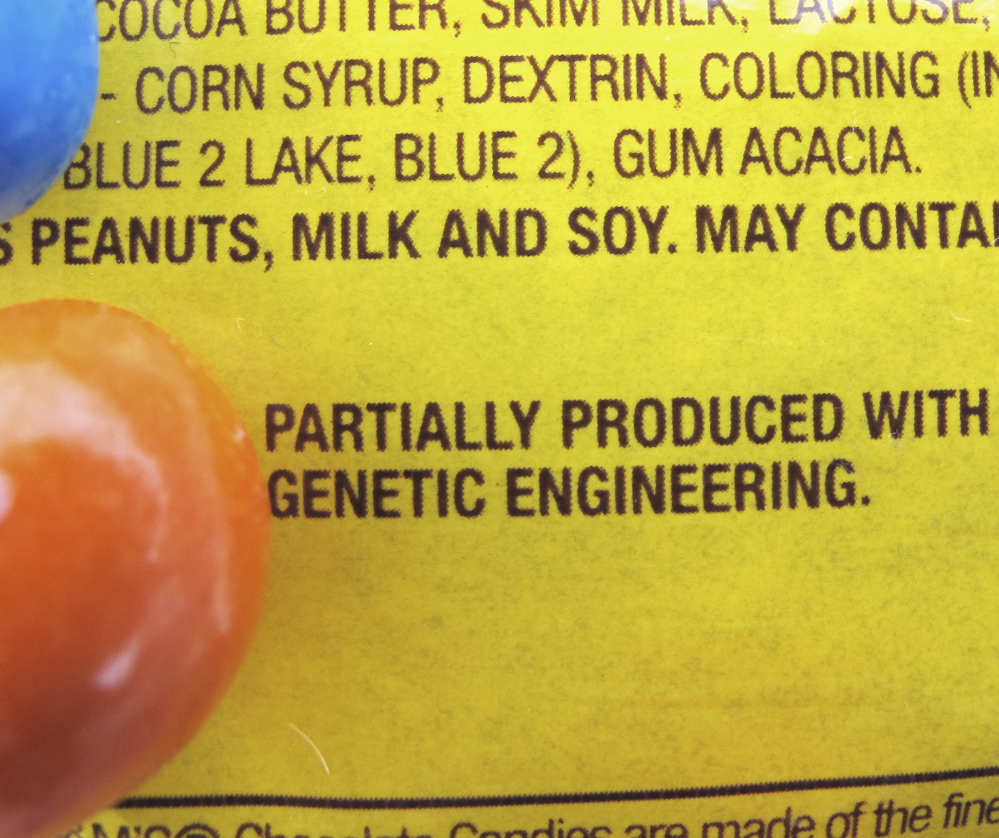WASHINGTON — Genetically manipulated food remains generally safe for humans and the environment, a high-powered science advisory board declared in a report Tuesday.
The National Academies of Science, Engineering and Medicine concluded that tinkering with the genetics of what we eat doesn’t produce the “Frankenfood” monster some opponents claim – but it isn’t feeding the world with substantially increased yields, as proponents promised.
With the line between engineered and natural foods blurring thanks to newer techniques such as gene editing, the 408-page report said, regulators need to make their safety focus more on the end-product of the food that’s made rather than the nuts and bolts of how it’s made.
The report waltzed a bit around the hot political issue of whether genetically modified food should be labeled. The study’s authors said labels aren’t needed for food safety reasons but potentially could be justified because of transparency, social and cultural factors, somewhat similar to made-in-America stickers. That stance was praised by some environmental and consumer groups, but criticized by some scientists as unnecessary because the food poses no unique risks.
There’s no evidence of environmental problems caused by genetically modified crops, but pesticide resistance is a problem, the report said. Farms that use genetically modified crops in general are helped, but it may be a different story for smaller farmers and in poorer areas of the world, it said.
Most of the modified plants are soybean, cotton, corn and canola; in most cases, genetic tinkering has made them resistant to certain herbicides and insects. When farms switched from conventional crops to the engineered varieties, there was no substantial change in the yield compared to non-engineered food. Production in general is increasing in agriculture, but U.S. Department of Agriculture data don’t show that genetically engineered crops are increasing at a higher rate, despite experimental results suggest that they should, the report said.
“Farmers in general are gaining,” with less pesticide use and a bit higher yield, academy committee chairman Fred Gould said at a Tuesday news conference.
The nuanced report first said it is important not to make sweeping statements on genetically engineered foods, which it called GE. Still, “the committee concluded that no differences have been found that implicate a higher risk to human health safety from these GE foods than from their non-GE counterparts.”
The committee chairman Fred Gould said his team examined anew over 1,000 studies.
Copy the Story LinkSend questions/comments to the editors.



Success. Please wait for the page to reload. If the page does not reload within 5 seconds, please refresh the page.
Enter your email and password to access comments.
Hi, to comment on stories you must . This profile is in addition to your subscription and website login.
Already have a commenting profile? .
Invalid username/password.
Please check your email to confirm and complete your registration.
Only subscribers are eligible to post comments. Please subscribe or login first for digital access. Here’s why.
Use the form below to reset your password. When you've submitted your account email, we will send an email with a reset code.